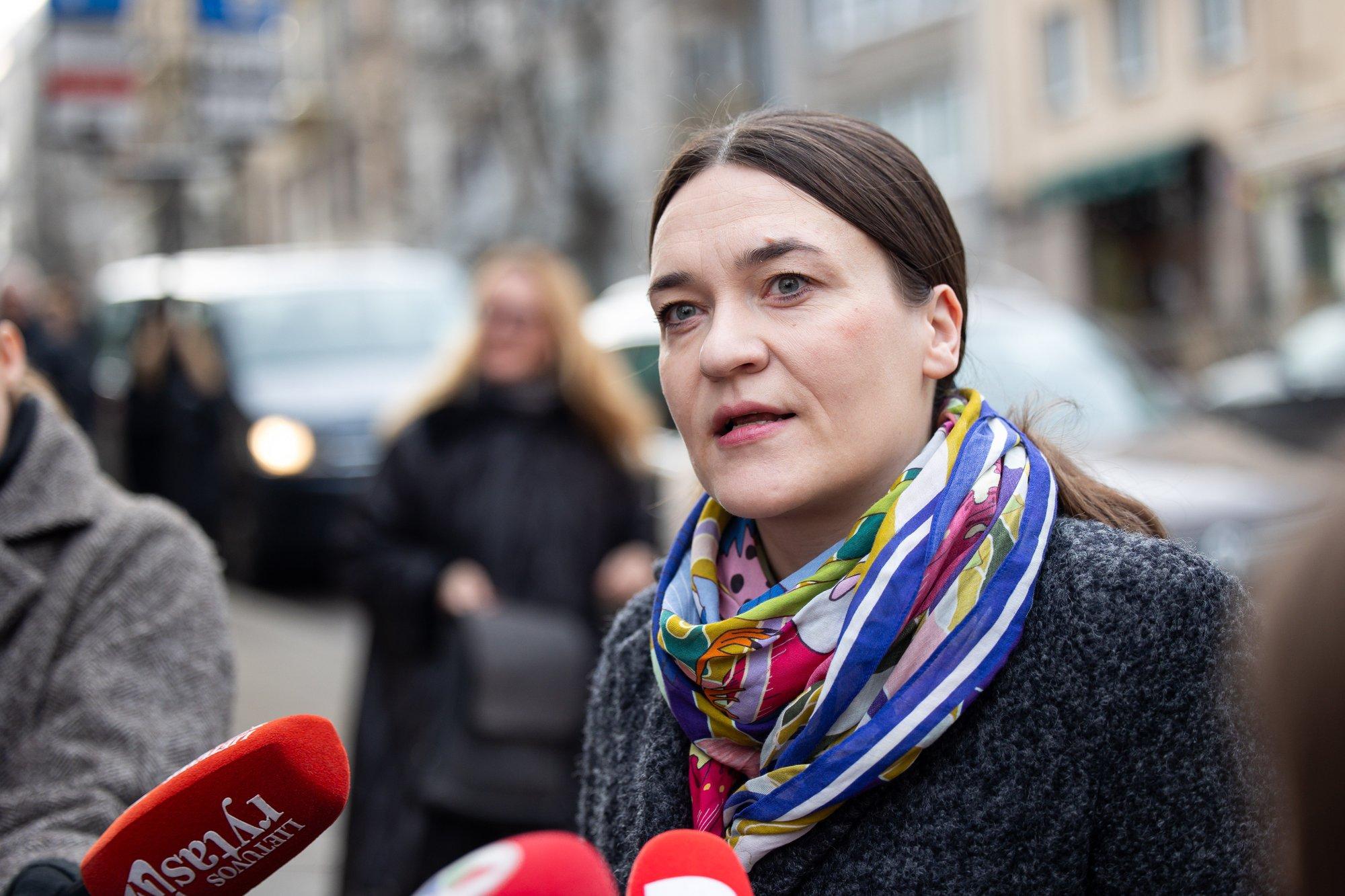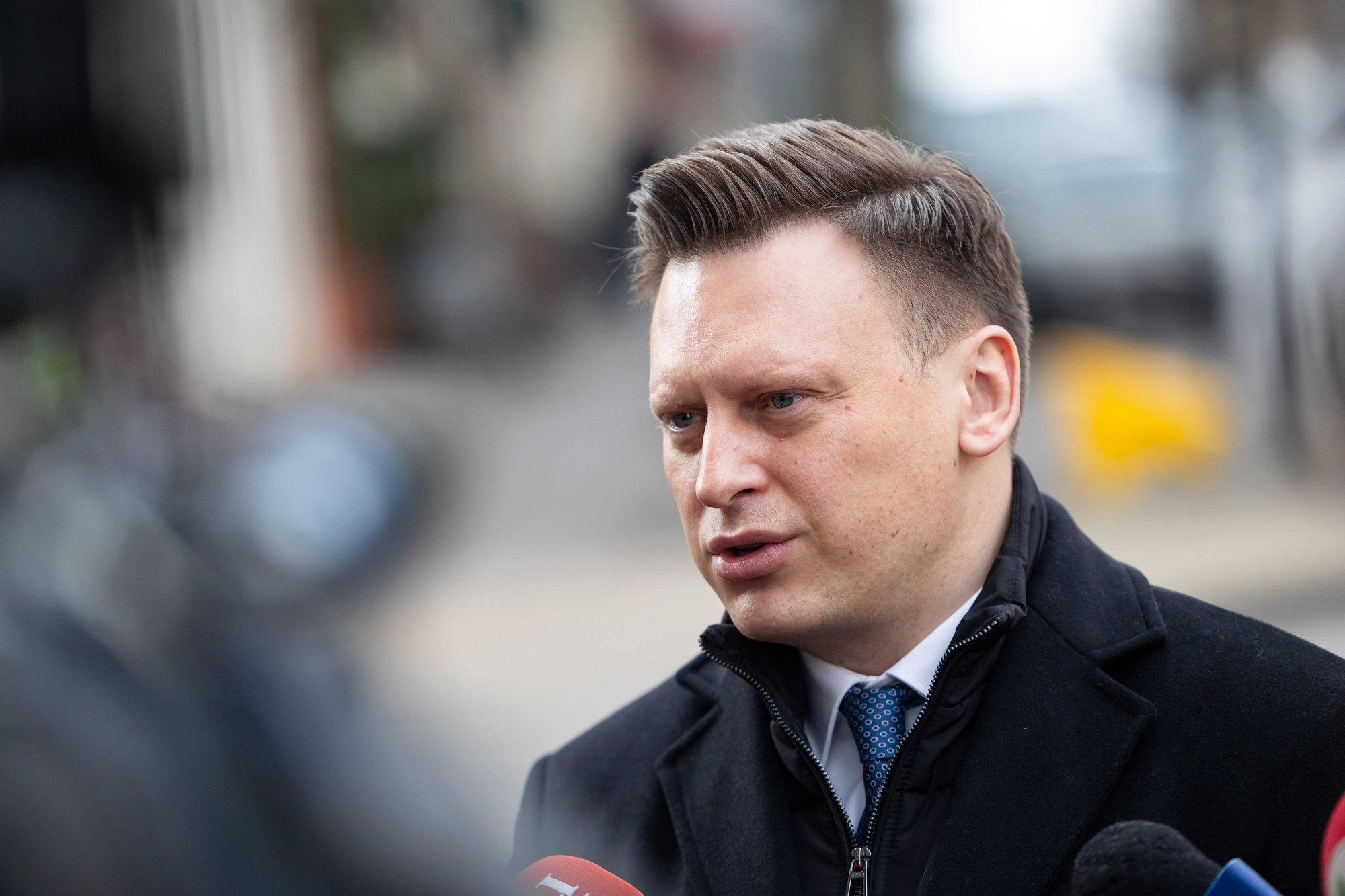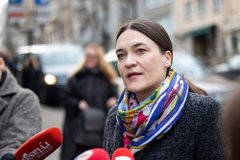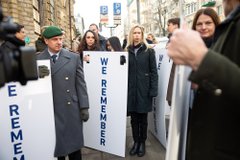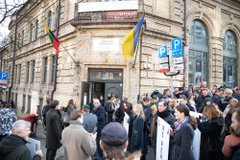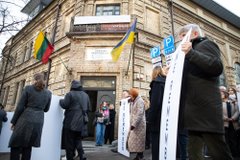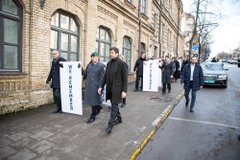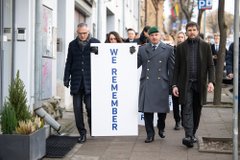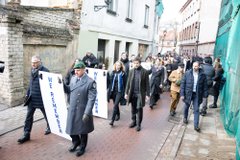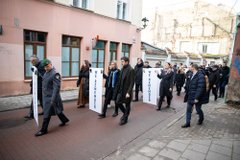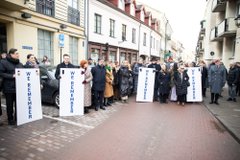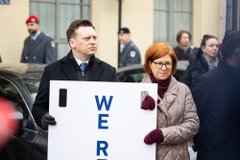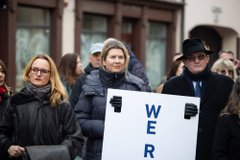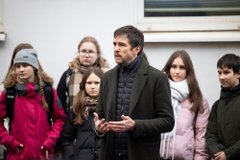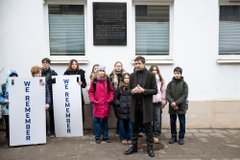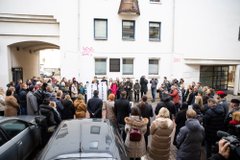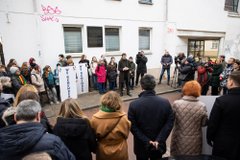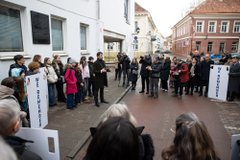Vilnius’ residents and guests, carrying banners reading „We remember“, walked from the Samuel Bak Museum (Vilna Gaon Museum of Jewish History) in Naugarduko Street to the former territory of Vilnius Large Ghetto.
Ambassador of Germany Cornelius Zimmermann said at the event that the Holocaust was the darkest period of German history and the country accepted historic responsibility for the crime against humanity. The ambassador said that resisting antisemitism depends on people so that horrors of the past would not repeat.
Poland’s chargé d’affaires ad interim in Lithuania, Grzegorz Marek Poznański, stressed that the Holocaust is a lesson how intolerance and a lack of dialogue may lead to extreme cruelty. He noted that 6 million Polish citizens, half of them Poles and half Jews, died in the Second World War and the country lost an entire generation of people.
Meanwhile, Vilnius City Mayor Valdas Benkunskas noted that the issue of the Old Jewish Cemetery near the Palace of Culture and Sports, and the matter of perpetuating the memory of the Righteous Among the Nations are being solved and nearing completion.
Simonas Strelcovas, director of the Vilna Gaon Museum of Jewish History that organised the event said that it attracts increasingly more participants each year, including young people and pupils, which is important.
The International Holocaust Remembrance Day this year marks the 80th anniversary of Auschwitz-Birkenau concentration camp liberation in Poland during the Second World War.

